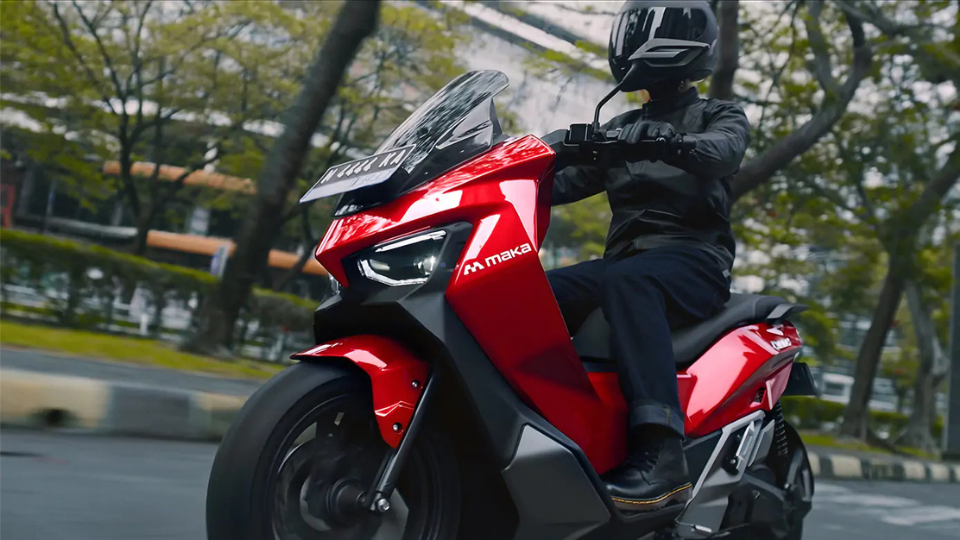MAKA Motors, an electric vehicle company focused on accelerating Indonesia’s journey to self-sufficiency in automotive technology, has officially launched its first locally designed electric motorcycle, MAKA Cavalry.
With this launch, MAKA Motors aims to redefine the riding experience for Indonesian consumers while advancing the electric vehicle ecosystem within the region, the company said in a statement on Wednesday.
Founded in 2022, MAKA Motors has been at the forefront of innovative electric vehicle solutions. The MAKA Cavalry is designed to meet the specific needs of Indonesian riders and the country’s varied road conditions, offering a combination of high performance long-range capability, and practical features.
As Indonesia pushes toward sustainability and increased domestic manufacturing, this launch represents a significant step in advancing both automotive technology and energy efficiency.
In 2023, MAKA Motors announced that it had successfully raised a US$37.6 million seed funding round participated including East Ventures and South Korea’s SV Investment.
This round is one of Southeast Asia’s largest seed funding rounds to date for a hardware startup, solidifying MAKA Motors’ position as a pioneer in the electric vehicle space in Indonesia.
Urban mobility in Indonesia presents unique challenges due to the sprawling urban areas, varying topographies, and congested roadways. MAKA Cavalry has been engineered to offer a superior electric motorcycle experience, designed for the realities of daily life in cities like Jakarta.
With a 160 km range on a single charge, the MAKA Cavalry provides an efficient and reliable solution to the typical concerns about range that often hinder electric motorcycle adoption in Southeast Asia. Thanks to its 4 kWh battery and Hi-Regen riding mode, riders can enjoy an extended range while contributing to reducing environmental impact.
“We are committed to providing a solution that meets the needs of Indonesian riders while pushing the boundaries of electric vehicle technology,” said Raditya Wibowo, Founder & CEO of MAKA Motors. “The MAKA Cavalry is the culmination of our vision to create electric motorcycles that offer reliability, performance, and most importantly, comfort for the diverse conditions on Indonesia’s roads.”
MAKA Cavalry is equipped with a variety of advanced features aimed at making the motorcycle the best choice for urban and rural riders alike. It boasts a top speed of 105 km/h, the ability to conquer inclines of up to 30 degrees, and a spacious 20-liter storage compartment for added convenience.
Riders will also appreciate features like USB A & C charging ports, a hybrid braking system, and a reverse function for easier parking in tight spaces.
Acceleration and ride responsiveness are key to delivering a smooth and enjoyable riding experience, and MAKA Cavalry excels in this area. With its instant acceleration from 0 to 60 km/h in just 4.8 seconds, riders can count on quick takeoff and efficient overtaking in busy traffic.
The bike offers two riding modes—Hi-Torque for maximum power and Hi-Regen for energy efficiency. Hi-Regen mode regenerates energy during braking, converting wasted heat into electricity to recharge the battery and further extend the bike’s range.
MAKA Cavalry also boasts cutting-edge suspension technology, featuring dual adjustable shock absorbers that enhance comfort, improve handling, and increase stability, particularly on Indonesia’s uneven roads. This focus on rider comfort ensures a smooth, secure, and enjoyable experience, even on the toughest urban routes.
As part of MAKA Motors’ commitment to advancing Indonesia’s automotive ecosystem, the company is poised to expand its operations with more showrooms and increased production capacity in the coming months. The first MAKA Cavalry units are available for test rides and purchase at MAKA Showrooms in five locations throughout the Jadetabek region.
The original article was published on TechNode Global, 17 January 2025.







